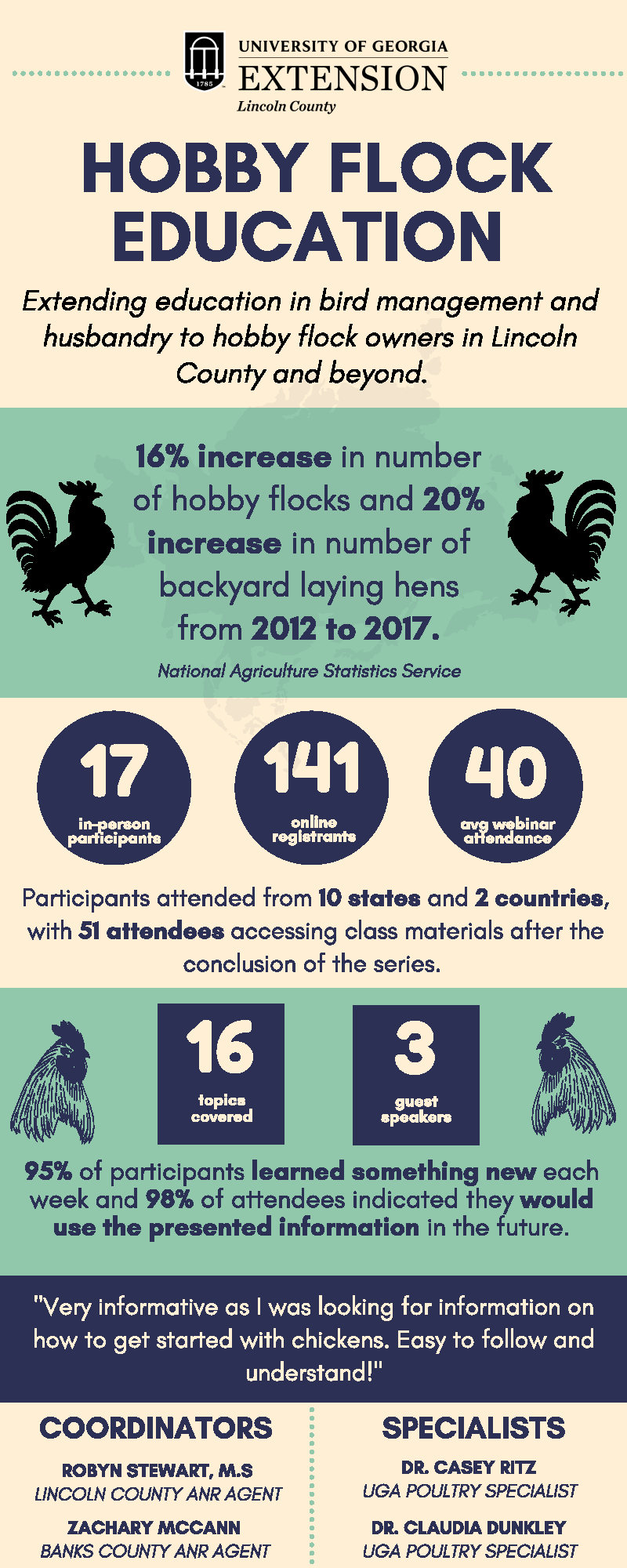Story in Brief
Hobby and backyard flocks have grown in popularity significantly over the last decade, yet small flock owners often lack essential knowledge and experience in flock husbandry. The Lincoln County Agriculture and Natural Resource (ANR) Extension agent developed curriculum and coordinated both an in-person program as well as a webinar series for flock owners. The in-person Hobby Flock Seminar Series had 17 participants ranging in age from 8 to 79 years of age. Of the participants, 58 percent were considering starting a flock, 14 percent were new flock owners, and 23 percent were experienced owners. Participants prioritized housing and predator management as their top concerns, followed by nutrition, egg/meat production, bird health, and lastly, breed selection, anatomy, and behavior. The Hobby Flock Virtual Webinar Series was held weekly with a total of 141 registrants from 10 states and two countries. Weekly attendance averaged 40 participants per class. A post assessment was required to access the webinar recordings, handouts and other materials from the class. All participants in the in-person program indicated an increase in knowledge across all topics. The most impactful sessions were “Coop Design and Predator Management” and “Brooding and Incubation,” with 67 percent of students indicating they learned new things in these sessions. Across the 16 topics covered in the webinar series, participants indicated learning something new 95 percent of the time. Both in-person and webinar participants were asked to identify behaviors they intended to change as a result of the class. Eighty-nine percent of participants stated they would definitely use best practices to construct their coop or alter their existing coop for ease of access, predator control, and bird health and comfort and 94 percent indicated they would definitely select appropriate breeds for their flock given their goals. Ninety-four percent of students also decided to select proper feed for their birds based on their age and role in the hobby flock. Of the participants, 96 percent stated that they would implement best practices for incubating and brooding chicks, and 89 percent agreed to use the most humane method of processing chickens on their farm.

